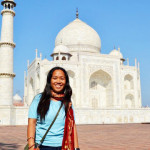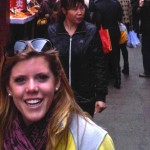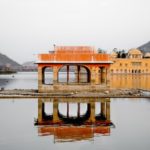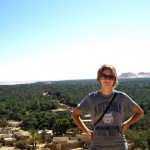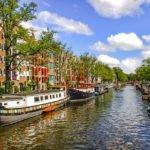Observing Elections in Ukraine
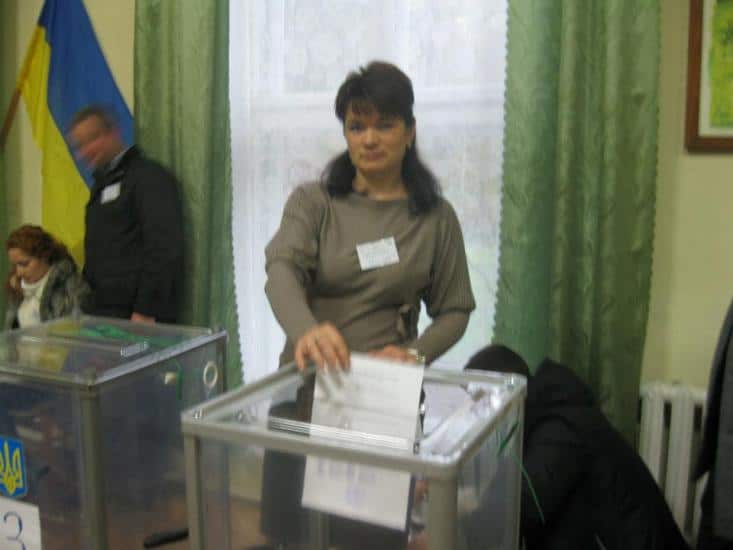

We travelled through the frigid but lovely Western Ukrainian countryside, where cows impeded passing traffic and the autumn leaves were brilliant against the rainy air. We visited polling places in schools, churches, and, in one memorable instance, a three-hundred-year-old sanatorium in the village of Velikiy Lubin, preparing for the long and grueling job of monitoring the vote on Election Day.
Observing Elections in Ukraine.
On the morning of the elections, I woke up at 5:30 and dressed in a haze, and gathered my stack of forms from UCCA. These would tell me what to watch out for: anything from obviously displayed campaign material within the polling place, to voter intimidation, to improperly sealed ballot boxes, and more. As a novice election observer, I was paired with Stefan, an older German lawyer who had extensive experience monitoring elections in places as far off as Belarus and Kazakhstan.
However, with one semester of Ukrainian under my belt, I was able to communicate with the locals in a mix of Ukrainian (the prevalent language in Western Ukraine) and Russian (a second language for most of the country’s citizens), which was a slight advantage for us (Stefan spoke Russian as well, but it certainly helped to be able to greet people and start conversations in their local language!).
Most of the day was spent travelling again through the rutted, muddy roads between the villages. It began to snow mid-day, and continued throughout the elections, although babushkas, mothers with babies, and countless village men filtered in and out of the polling places. As part of our job as election observers, we struck up conversations with the election commissioners who were in charge of each polling place, generally a committee of 15-20 people from the village.
A few members of the Velikiy Lubin election commission were young men, and all of them decided they found this American female election observer very interesting.
One thing that surprised me was how many of these commissioners were women. In fact, the majority of each committee we saw were women—from village schoolteachers to vegetable saleswomen, each of them had seen fit to take democracy into their own hands at a local level. As babushkas and young mothers voted all around us, I took the time to ask a few commission heads why they’d chosen to become election commissioners—taking days or even weeks out of their lives to set up polling places, seal ballot boxes, sign protocols and check voters’ identifications.
Each one had a slightly different answer, but the general gist was the same: each woman I spoke to wanted to change the future of this country, and make life better for her children than it had been for her. As an American raised to revere democracy, this was incredibly heartwarming, especially given the prevailing, rather gloomy atmosphere of cynicism that had dominated most of the conversations I’d had about these elections, with expats and Ukrainians both. Stefan and I were fed coffee, cake, and toast with salami in many polling places, treated like guests of honor, and shown the ballot boxes, security cameras and voting booths without any protest.
Although I saw a couple of minor violations at the local level, and other members of our team decried the egregious fraud they’d seen elsewhere, I found the overall experience to be inspiring and enlightening in ways I’d never expected—and not just because of the stunning pastoral views that surrounded us on every side.
The conversations I had with commissioners, voters, and observers from opposition political parties alike were filled with a sense that although the system as a whole might be designed to prop up those in power, individual Ukrainians were doing their best to ensure that voting was free, fair, and reflected the desires of the populace. (Including those members of the populace who chose to vote drunk, ranting on their way in and out of the ballot box—something that happened more than once in the more remote villages!)
At the end of the (very long) day, Stefan and I returned to the sanatorium at Velikiy Lyubin to watch the polls be closed and the ballots be counted. And although this process took a very long time—we were locked into the sanatorium for the voting count from 8pm, when the polls closed, until 3am, when the last protocols were signed—it was also the first time that day that I was made acutely aware of my gender. (Prior to the elections, I had been planning to write this post, and wondering how I could make it suitable for a travel community designed for women!)
A few members of the Velikiy Lubin election commission were young men, and all of them decided they found this American female election observer very interesting. As I strained to catch sight of the ballot count, I found myself bombarded with questions from three or four men at once—about my marital status, hair, and even my figure.
Observing Elections in Ukraine.
Later on, when I went to get some food in the commission break room, I was even cornered by one guy, in his mid-20s, who informed me how “interesting” he thought sex with me would be, and put his hands all over me. It took me a few minutes to recognize the smell of vodka on his breath—and realize that this election commissioner was blackout drunk in the midst of the ballot count. I beat it back into the ballot room before things progressed too far—but it was a discouraging reminder of how far Ukraine has to go before it achieves gender parity, even within the context of its elections.
Nonetheless, despite that late-night hiccup, I’m very glad I took the time to observe these elections. It was a fascinating experience, one that allowed me to see more of the countryside and speak to a wide range of Ukrainians—from the hopeful, hardworking village schoolteachers to the voters young and old, coming out to try to make their democracy work, against the odds—ultimately, exactly the type of experience that this Fulbright year is all about.
Photo credit for Observing Elections in Ukraine by Talia Lavin.

